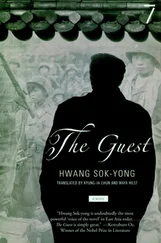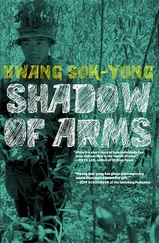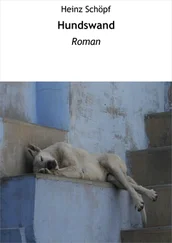“How dare you order me to chop wood?”
“Why aren’t you leaving?”
“I’m afraid you’ll run away.”
Grandmother took over Bari’s part: “ ‘You idiot! How on earth would I get away from you? I can’t go anywhere, so hurry off. I’ll tie this thread around my wrist and give the other end to you … so hurry off now.’ She begins cleaning the house and sweeping the floor. The stupid fool leaves. But he comes rushing back before it’s even lunchtime, looking like he’s fallen and cut and bruised himself along the way.”
“What happened to you?” I asked as Bari. “Did you run into a bear? Did you run into a tiger?”
“No, my A-frame carrier kept tugging me this way and that, and I tripped and fell.”
“Ah, I have to move my hands back and forth to clean the house! What an idiot you are! Don’t tie the thread around your carrier this time. Here, I’ll draw you a picture of me instead. Take it with you and stick it to a tree. If it stays up, that means I’m still here. If it falls down, then it means I’ve run away. Be sure to use lots of glue and stick it on good.”
“So the jangseung takes the picture, and whenever he wants to see his future wife, he looks at it and smiles. He glues it to a pine tree, and it stays in place. Finally he can relax, knowing that she hasn’t run away, and he goes to work chopping firewood.”
“Heaven brings the totem pole and Princess Bari together. Isn’t that right, Grandma? And now they have to have children?”
At some point, while recalling, one by one, the stories my grandmother and I used to recite, I slipped into sleep.
One day, around the time I’d nearly paid off my smuggling debt — which means I must’ve been working at Tongking for about a year by then — Uncle Tan called me into the hallway at the back of the shop where the toilets were. I hadn’t done anything wrong, but the grim look on his face made my heart race.
“Have you heard?” he asked. “There’s going to be a crackdown this week.”
“What kind of crackdown?”
“You don’t have a visa or a work permit, do you?”
I looked down and thought about his question. Uncle Lou must have told him my story.
“Don’t worry. I’m not going to fire you. The problem is that if we get caught, the worst that will happen to me is I’ll be fined two thousand pounds and could lose my business licence, but you’ll go to jail and get deported.”
Vinh, the Vietnamese girl who lived in a government-subsidized flat nearby, had gone home the night before to find that a joint squad of local police and UK Border Agency officers had arrived in several vans and were blocking the entrance to the apartment building. They searched door to door and took away a dozen illegal immigrants. Uncle Tan pulled some cash from his pocket and tried to hand it to me.
“I called up some friends,” he said. “They said it looks like the shops in this area will be inspected this week. I need you to lie low until things have settled down. Shouldn’t be more than a couple of weeks.”
I bowed several times and said: “Thank you for warning me. And I don’t need your money. I didn’t earn it.”
“Take it. You can pay me back later.”
“As long as you’ll hire me back, I’m really okay.”
I refused to take his money. When Luna saw me leaving early, she followed me out of the salon.
“Where are you going?” she asked. “Is something wrong?”
“I’m fine. I’m just heading home early. I have a headache.”
She took my hand and shook it lightly.
“Okay, get some rest. Are you sure you’re okay?”
I nodded, then turned and took my time walking back to our flat in Lambeth. By the time I got there the sun had already set, and the stairwell was dark. I groped my way downstairs. Suddenly the door across from ours swung open, and I saw a shadowy figure. It was the Nigerian woman who lived next to us.
“Oh! It’s you,” she said. “I was hoping it was …”
I wondered what she was doing in the dark. The lights were turned off inside her flat as well. The window that looked out onto the courtyard let in some light from outside, but it wasn’t much.
“Is the power out?” I asked.
Finally she flicked the lights on, as if she’d simply forgotten about them. I took out my key and started to unlock my door, but when I saw she was still standing there, I said without thinking: “Your husband isn’t home yet?”
“No, I’m waiting for him,” she said.
I opened the door, but before I stepped inside, I glanced back again. She was leaning on the wall next to the door. I looked at her for a moment.
“Would you like some tea?” I asked.
I held the door open, and she slipped inside without a word. When I followed her in and closed the door, she collapsed against my shoulder and burst into tears. I was bewildered, but patted her on the back and asked what was wrong. She pulled away from me and sank onto the floor.
“My husband was arrested.”
I helped her up and led her over to the big, cushy armchair that Luna and I were always fighting over. Her face was streaked with tears.
“Someone who works at the petrol station with him called me. They took him because he doesn’t have a work permit.”
My heart sank. So it was true!
“We went through so much to make it here …” she said. “We have nowhere to go back to.”
I put a kettle of water on to boil and took out the teacups.
“He doesn’t have a work permit, so he was paying a hundred pounds a week to borrow someone else’s. But there’s such a big age difference between him and the person he borrowed it from, that if they investigate him in person instead of just checking the paperwork they’ll catch him right away. You know, you get paid less if you don’t have a permit — only half of what legal workers make, and sometimes as little as thirty percent. But if you borrow someone else’s permit, you can make up to seventy percent of the regular wage.”
I poured her a cup of tea; she seemed to have calmed down already. She took a few deep breaths, and sipped her tea.
“If he’s deported,” she muttered, “I’ll run away.”
She stared down at the floor.
“We left our children behind,” she said. “All three of them. And we still haven’t finished paying off the men who brought us here.”
I couldn’t tell her that my situation was similar. I wasn’t in a position to trust anyone yet. I’d been working hard to pay off my smuggling debt, not paying attention to anything else around me, but now I understood the seriousness of my situation. It occurred to me that I had to console her if I was also to console myself.
“Who knows?” I said. “Maybe they’ll let him go and he’ll come back home …”
She shook her head weakly.
“That miracle already happened. There was a crackdown and he was sent to jail, but then there was a shift change and the new officer called names off of the list of work permit holders without bothering to check them against their photos. My husband told me a kindly old man who was among those being released took pity on him and had him take his place. Of course, they probably found out later what happened. Everything is the will of God.”
I kept my composure, but there was no doubt in my mind that danger was approaching. Her husband would be investigated; it would be discovered that he’d borrowed his work permit from someone else; they would find out where he lived; and his wife would be exposed too. The police might be there as early as the following morning. It was actually a good thing their children weren’t living with them. She looked like she was out of her mind and giving up hope.
Читать дальше












